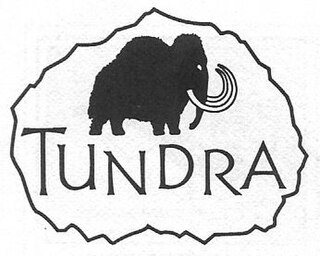Related Research Articles

Eddie Campbell is a British comics artist and cartoonist. He was the illustrator and publisher of From Hell, and the creator of the semi-autobiographical Alec stories collected in Alec: The Years Have Pants, and Bacchus, a wry adventure series about the few Greek gods who have survived to the present day.
A graphic novel is a long-form work of sequential art. The term graphic novel is often applied broadly, including fiction, non-fiction, and anthologized work, though this practice is highly contested by comics scholars and industry professionals. It is, at least in the United States, typically distinct from the term comic book, which is generally used for comics periodicals and trade paperbacks.

A British comic is a periodical published in the United Kingdom that contains comic strips. It is generally referred to as a comic or a comic magazine, and historically as a comic paper. As of 2014, the three longest-running comics of all time were all British.
An autobiographical comic is an autobiography in the form of comic books or comic strips. The form first became popular in the underground comix movement and has since become more widespread. It is currently most popular in Canadian, American and French comics; all artists listed below are from the U.S. unless otherwise specified.
Alternative manga or underground manga is a Western term for Japanese comics that are published outside the more commercial manga market, or which have different art styles, themes, and narratives to those found in the more popular manga magazines. The term was taken from the similar alternative comics. The artistic center of alternative manga production was from the 1960s until the 1990s the manga magazine Garo, which is why in Japan, alternative manga are often called Garo-kei, even if they were not published in Garo.

Paul Gravett is a London-based journalist, curator, writer, and broadcaster who has worked in comics publishing since 1981.

Escape magazine was a British comic strip magazine founded and edited by Paul Gravett and Peter Stanbury. Nineteen issues were published between 1983 and 1989. Eddie Campbell, Phil Elliott and Glenn Dakin were amongst the many cartoonists published within its pages. Escape Publishing also released a limited number of graphic novels in the period 1984–1989, some co-published with Titan Books.
Phil Elliott is a British comic book creator who was published in Escape Magazine. He was part of the British small press comics scene in the 1980s.

Trident Comics was a short-lived comic book publishing company based in Leicester, UK. Specialising in black-and-white comics created by new British talent, it was formed in 1989 as an offshoot of the comics distributor/wholesaler Neptune Distribution, and went out of business in 1992 when Neptune was acquired by a competitor.

A1 is a graphic novel anthology series published by British company Atomeka Press. It was created in 1989 by Garry Leach and Dave Elliott. In 2004 it was restarted, publishing new and old material.
Fast Fiction was a market stall, magazine, mail order distributor, and news sheet that played a key role in the history of British small press comics. It existed in its various forms from 1981 through to 1990 under the stewardship of Paul Gravett, Phil Elliott and Ed Pinsent.
British small press comics, once known as stripzines, are comic books self-published by amateur cartoonists and comic book creators, usually in short print runs, in the UK. They're comparable to similar movements internationally, such as American minicomics and Japanese doujinshi. A "small press comic" is essentially a zine composed predominantly of comic strips. The term emerged in the early 1980s to distinguish them from zines about comics. Notable artists who have had their start in British small press comics include Eddie Campbell, Paul Grist, Rian Hughes, Jamie Hewlett, Alan Martin, Philip Bond and Andi Watson.

Tundra Publishing was a Northampton, Massachusetts-based comic book publisher founded by Kevin Eastman in 1990. The company was founded to provide a venue for adventurous, creator-owned work by talented cartoonists and illustrators. Its publications were noted in the trade for their high production values, including glossy paper stock, full-color printing, and square binding. Tundra was one of the earlier creator-owned companies, before the formation of Image Comics and Dark Horse Comics' Legends imprint.
Woodrow Phoenix is a British comics artist, writer, editorial illustrator, graphic designer, font designer and author of children's books.
Ed Pinsent is a British cartoonist, artist, and writer.
Gary Northfield is a British cartoonist, most famous for his Derek the Sheep comic strip published in DC Thomson's The Beano and BeanoMAX.

Harrier Comics was a British comic book publisher active in the mid-to-late 1980s. Harrier was notable for putting out black-and-white comics in a mold more similar to American comics than to typical British fare.
Nigel Auchterlounie is a British comics artist and cartoonist. His artwork featured heavily in the children's comic The Dandy, often writing the strips himself.
Comic Mart is the catchall term for a series of British comic book trade fairs which were held in the United Kingdom from 1972 until the early 1990s. The Comic Mart was one of the earliest recurring public comic events in the UK, predated only by the British Comic Art Convention. Comic Mart began in London, eventually expanding to Birmingham, Manchester, and Liverpool, among other locations. The first few Comic Marts were organized and produced by Rob Barrow and Nick Landau; eventually they split up to produce competing versions of the event, and were joined by other regional organizers.

Pssst! was a short-lived British comics magazine published by Never–Artpool in 1982. Pssst!, which lasted ten monthly issues, was an attempt to publish a British equivalent of the lavish French bande dessinée magazines.
References
Notes
- 1 2 3 Hart, Tom (2001). "The Scribbled Philosophy of Glenn Dakin," The Comics Journal #238: 71–87.
- ↑ Higgins, Jez (2002). "There Is No Escape From The Deadline of Temptation" Borderline #7: 32–37.
Sources
- Campbell, Eddie (2001) Alec: How To Be An Artist. Eddie Campbell Comics. ISBN 0-9577896-3-7.
- Creativemedia Management CV. Retrieved 12 Aug 2005
- Glenn Dakin Archived 25 May 2008 at the Wayback Machine at Lambiek's Comiclopedia